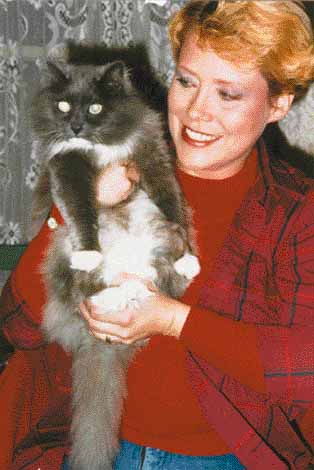In addition to my post here and on Daily Kos about NPR “Day to Day” host Madeleine Brand’s reaction to a statement that the US had facilitated Saddam Hussein’s Anfal campaign against the Iraqi Kurds, I wrote an email to NPR directly. In my email, I suggested that information about US involvement had been available for some twenty years and that anyone who had been paying attention to international politics — say, someone with the credentials to be in a position of interviewing politicians from around the world — should have been aware of that fact, especially if they’d been prepared for an interview on the subject of the massacre of the Kurds.
I received an email note back from Brand (note to anyone writing NPR, their comment form emailer apparently strips all of your apostrophes, making you look like some sort of typographical moron to the recipient) in which she took issue with my characterization, adding that she was trying to get Othman to make the distinction that the US “did not itself gas the Kurds or tell Saddam to do so.”
She closed her note with a sentence that struck me as particularly strange: “And, no, I’m not blonde.”
That was odd, because nowhere in my email to NPR, or in the post here or in the cross post on Daily Kos did I ever mention Brand’s hair color. When one of the commenters at Kos made a disparaging remark about blondes, I wrote a response on Monday afternoon — a full day before I received Brand’s email — about how much I disliked stereotypes of attractive women being stupid. On top of that, my wife’s blond, and she’s smarter than I am.

As I mentioned in today’s update to “Clueless at NPR”, I thought that while Peter Galbraith’s interview essentially confirmed Othman’s charge to “Day to Day” listeners, Galbraith had left a lot of wiggle room for people to claim that the US was only “indirectly” involved with Saddam’s use of chemical weapons against Iran and the Kurds (both of which were war crimes) or that US approval of chemical warfare was more by “omission” rather than “commission”.
Personally, I’m not sure whether providing satellite imagery about where to use poison gas on human waves of Iranian children is “indirect” enough for me. Nor is selling helicopters that can be modified for use against “insurgents” hiding in civilian Kurdish populations, or selling Saddam anthrax or botulin cultures, all of which took place in the mid 1980s. (Look for Saddam’s lawyers to equate his fight against peshmerga fighters hiding amongst the Kurds to Israel’s use of force against Hezbollah in Lebanese civilian populations later this week.)
For an exhaustive rundown on the ties between the US and Saddam, check out “Shaking Hands with Saddam Hussein: The U.S. Tilts toward Iraq, 1980-1984”, from George Washington University’s National Security Archive.
Apart from the de rigeur video of Rumsfeld literally shaking hands with Saddam in 1983, it details how the US took Iraq off the terrorist states list in 1982 (it had been there because of support for Palestinian terrorist groups). The US helped Iraq obtain financing for the war with Iran, exported grain to Iraq, and finally restored full relations with Iraq in 1984.
One of the declassified US government documents linked from the site confirms “almost daily” use of chemical weapons by Iraq against Iran. Another (from November 1983) begins “We have recently received additional information confirming Iraqi use of chemical weapons. We also know that Iraq has acquired a CW production capability, primarily from Western firms, including possibly a U.S. foreign subsidiary.” The final pages of that same document include the statement: “In July and August 1983, the Iraqis reportedly used a chemical agent with lethal effects against and (sic) Iranian forces invading Iraq at Haj Umran, and more recently against Kurdish insurgents.” That report was made more than five years before the gas attack at Halabja.
Also worth a look — although it lacks links to original source material — is a 2002 article in CounterPunch by Kurt Nimmo called “Bush Senior: Hating Saddam, Selling Him Weapons”, which summarizes a statement made during a trial by Howard Teicher, a former NSC staffer who accompanied Don Rumsfeld to Baghdad. A wealth of information was also entered into the House records by the late Rep. Henry B. Gonzalez in 1992.
Read ’em and weep.